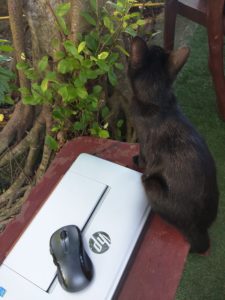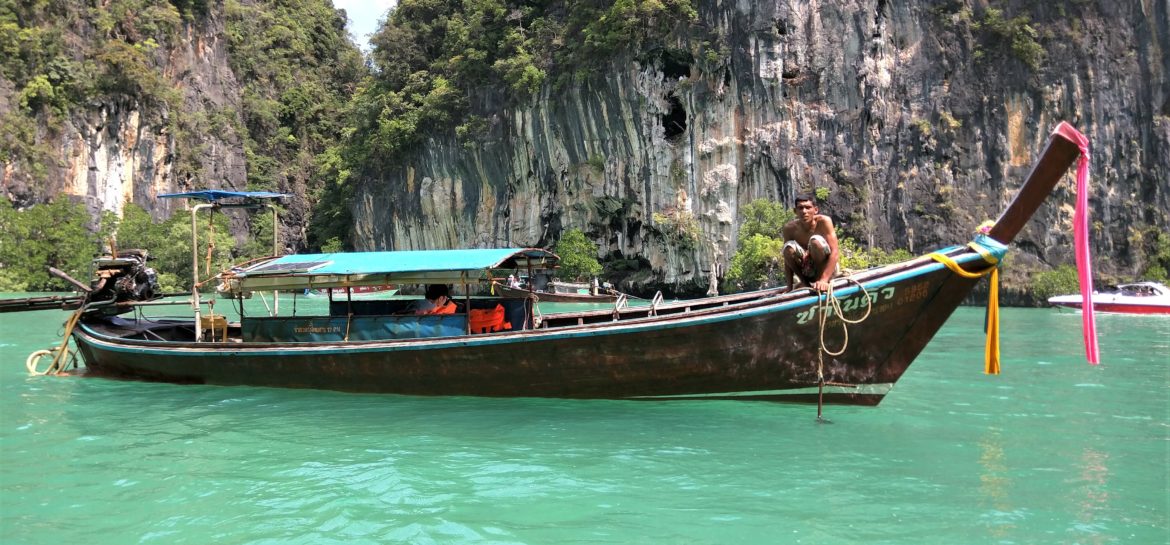
Though our tiny bungalow and its secluded beach gave us little reason to want to leave (unless we thought about scorpions under the bed) we were in southern Thailand so many stunning beaches, remarkable coves, and remote tropical islands called to us. We had to listen.
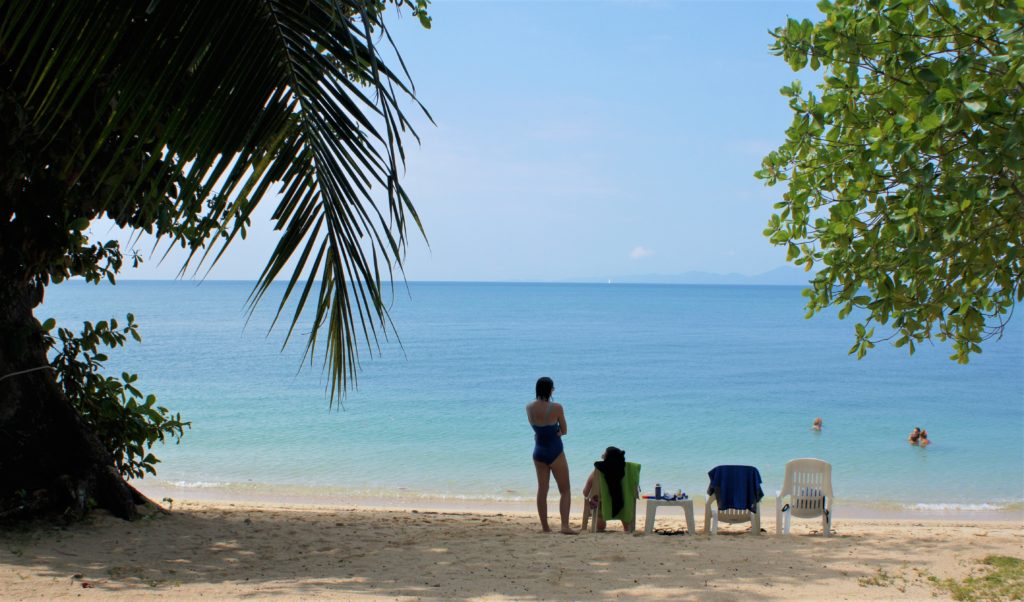
Southern Thailand is simply gorgeous. The mesmerizing blue-green waters are calm and warm. The surrounding landscape is dramatic. Limestone karsts, covered with a riot of plants and palms, rise in every direction. Any vista is a feast for the eyes. And it doesn’t stop there. The people of Thailand are like their waters, warm and inviting. The traditional Thai greeting (called the wai) of a slight bow with palms pressed together and always accompanied by a graceful smile is practiced everywhere and adds to the relaxed and friendly vibe of this beautiful country.
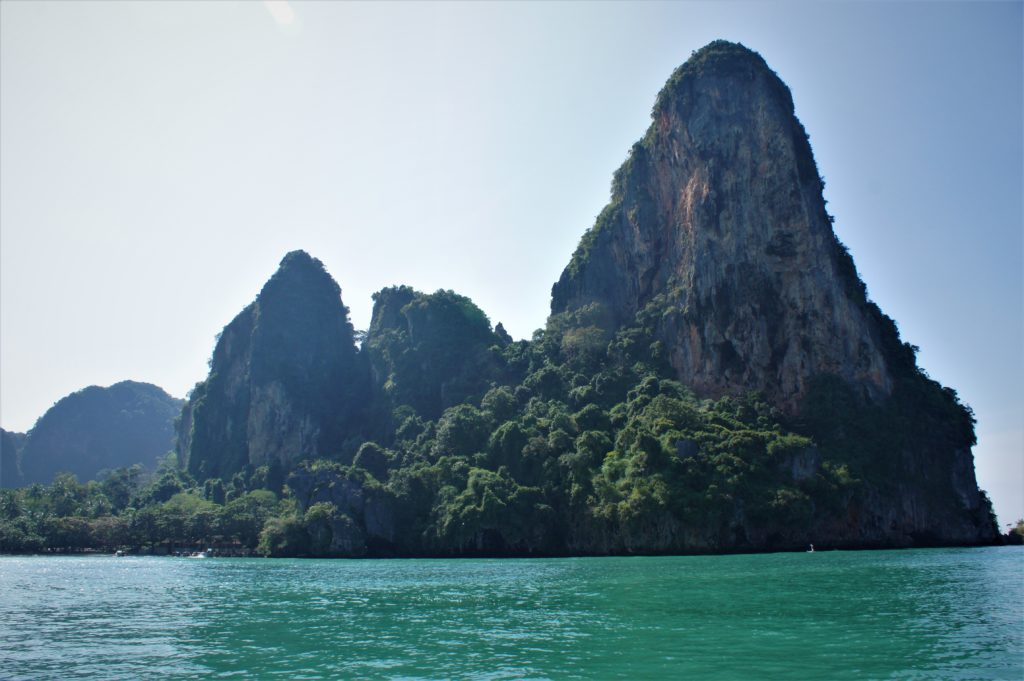
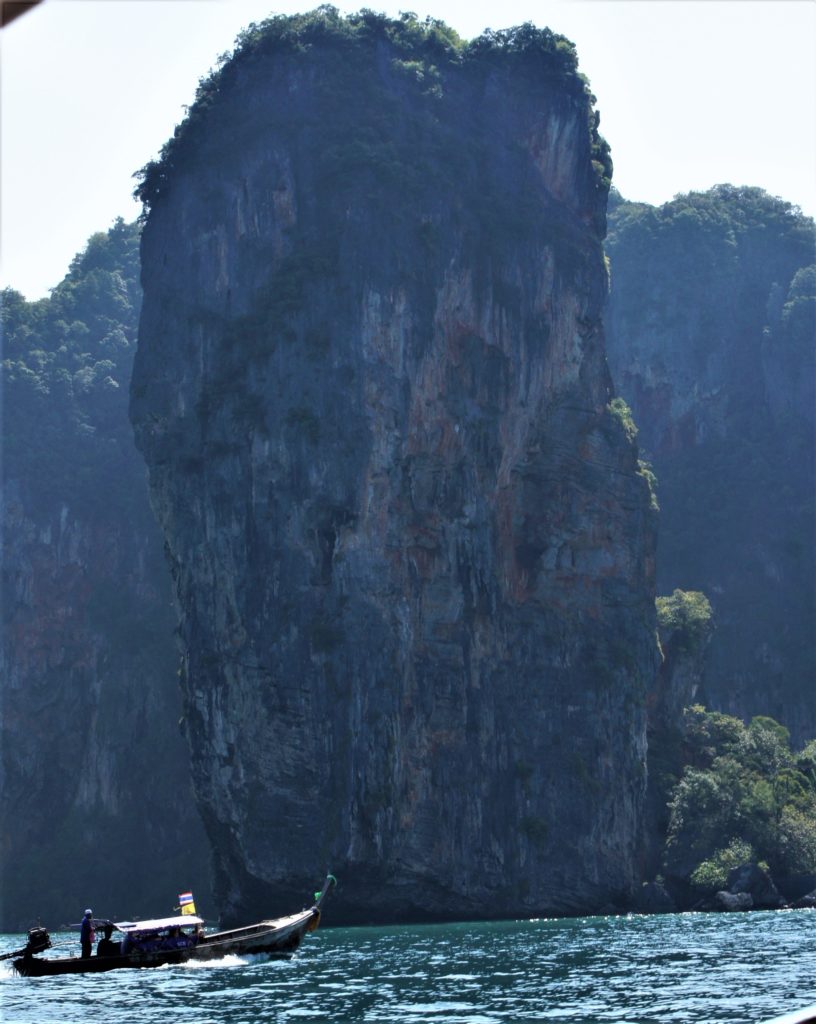
We spent our time on the south eastern shores of peninsular Thailand in Krabi province. Most visitors to Southern Thailand travel to Phuket which lies across the bay. Krabi has a reputation for being a quieter, less touristy, section of the peninsula. Though there are plenty of tourists who visit, it does have a small town feel and there are not sprawling resorts crowding the beaches and towns along the shore.
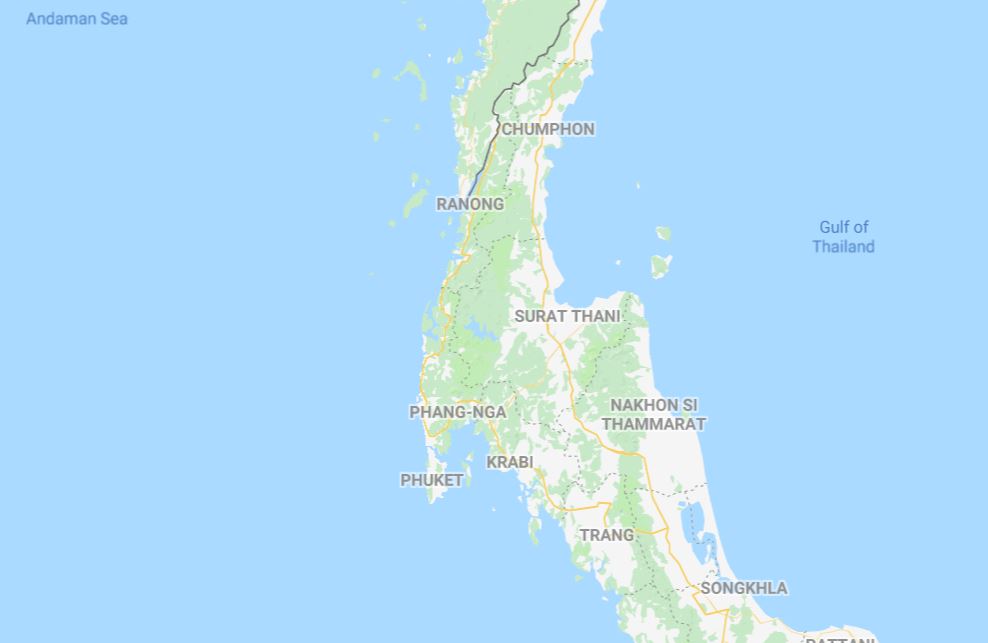
Longtail boats are everywhere and are a charming and economical way of getting to the beaches and islands that are largely inaccessible by any road. Our first outing was to a beach which is accessible only by boat caught from neighboring Ao Nang. Railay Beach is famous for its rugged coastline and crystalline sand. Both of which make it a lovely way to spend a day, swimming, kayaking, watching monkeys swing through the trees, or napping in the shade.

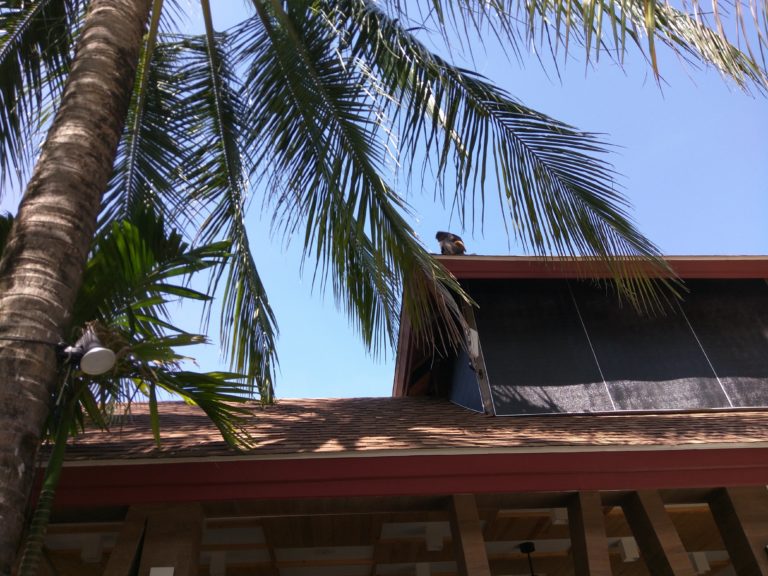
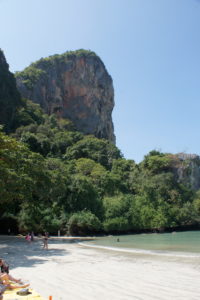
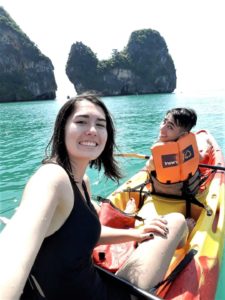
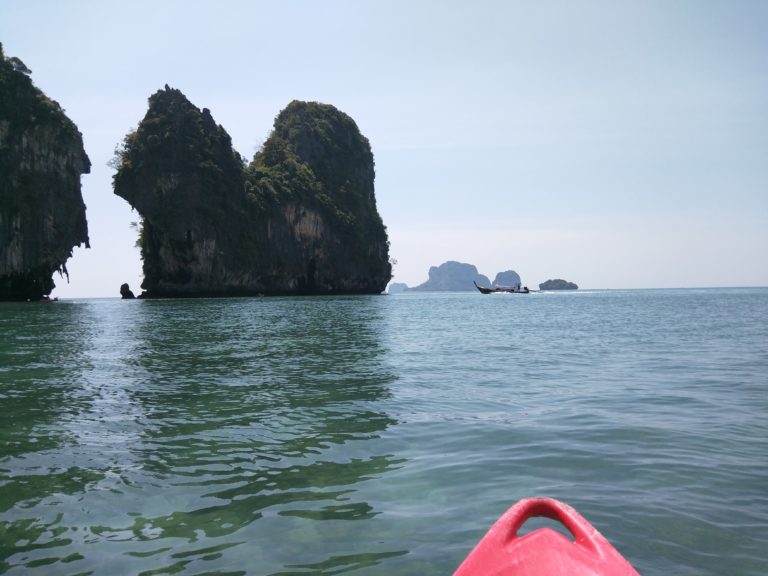
Tides have a strong effect on beaches in this part of Thailand. Low tide exposes lengthy stretches of seabed and rocks that make swimming only possible at high tide. Alaska has some of the largest tides in the world and the tides of Thailand reminded me of the dramatic changes that tides have on the seashores there.
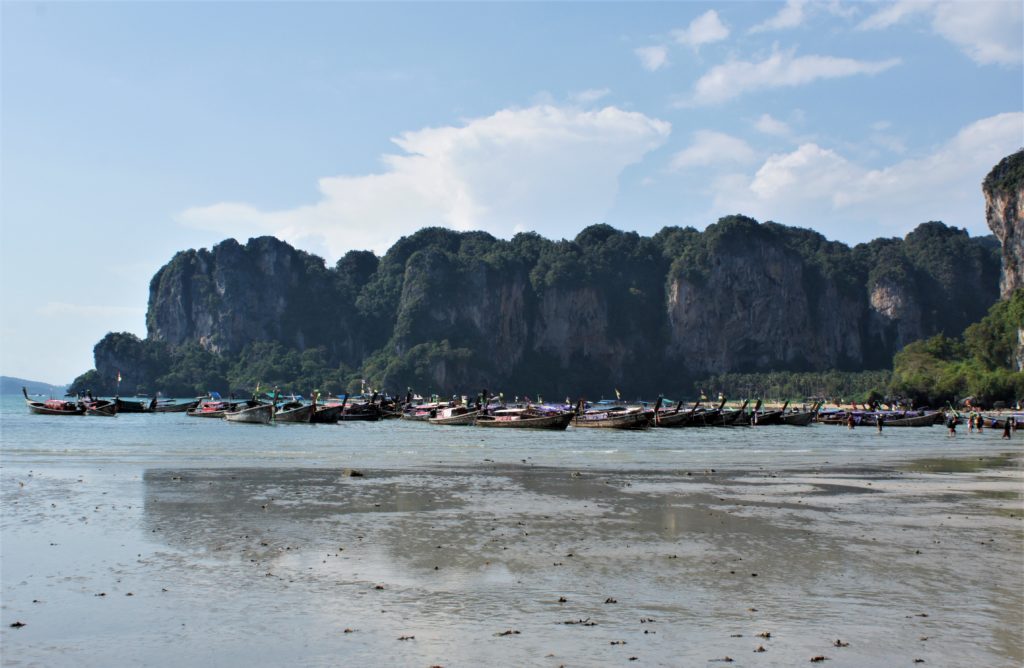
Understanding tide tables is a confusing and complicated task. (Traveler Tip: If you find yourself in Thailand and plan activities that depend on water, you either need to be chill and not mind walking through muddy exposed seabeds and over craggy rocks, or rely on locals for their advice.) The 2004 Tsunami that caused incredible destruction and astounding loss of life in this region also struck Krabi, but because of the buffer that the Phuket peninsula gave to the area, the impact was less devastating along these shores. I remember watching video footage of the event and being horrified by scenes of tourists going out to explore the beaches that were exposed in a low tide – none of them knowing the waters had receded so much due to the impending tsunami. At the time I thought that this was unusual and therefore more tragic. But seeing these dramatic shifts in tides made me wonder if it wasn’t that unusual and therefore, sadly, even more tragic.
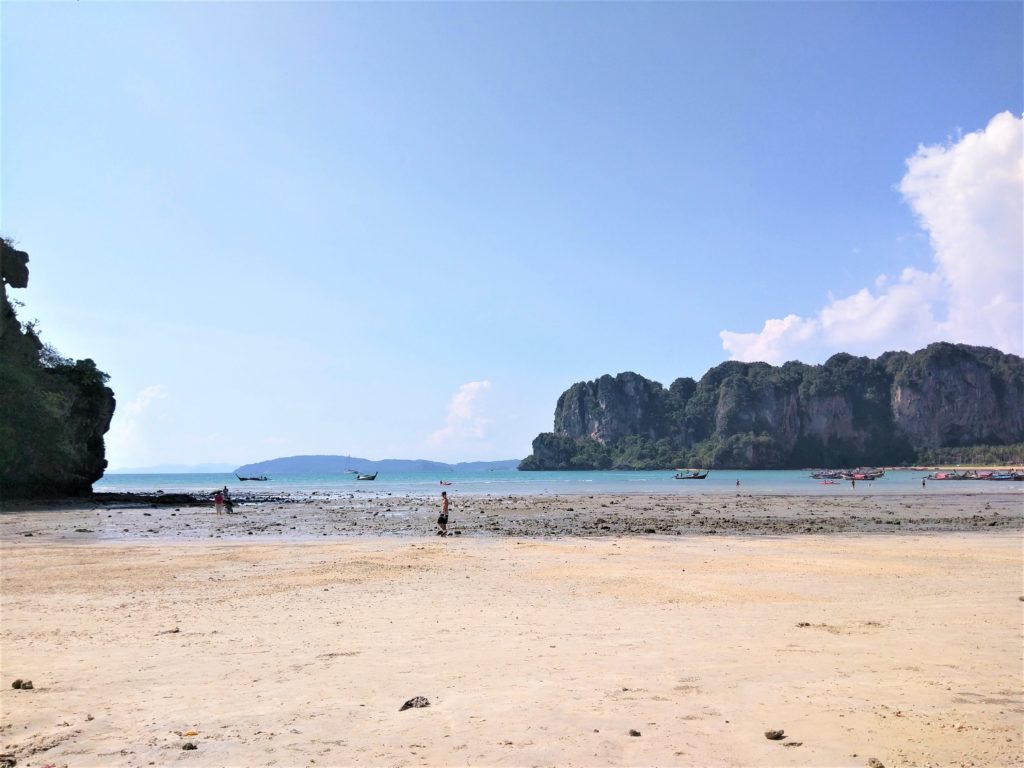
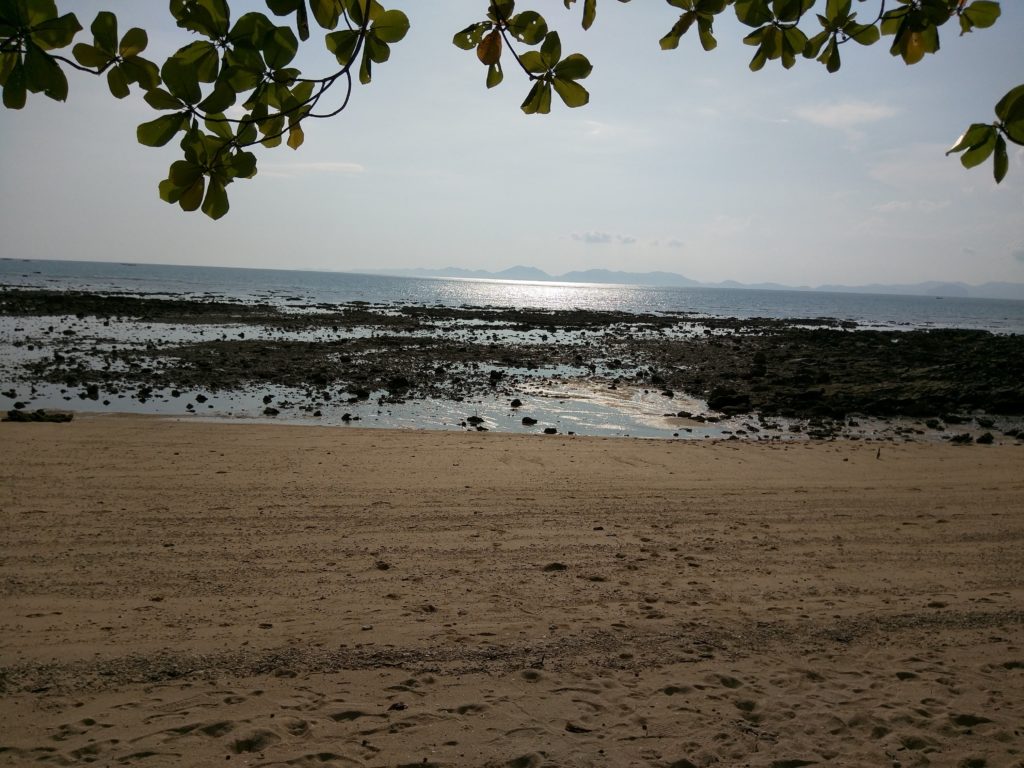
Our second longtail boat excursion was an all-day adventure to farther flung islands in the nearby Andaman Sea. For this outing, we hired a private boat arranged through our bungalow hotel for half of the price of a group tour advertised elsewhere. (Traveler Tip: Organizing tours and boat rentals on site rather than online usually gives you the best price.)

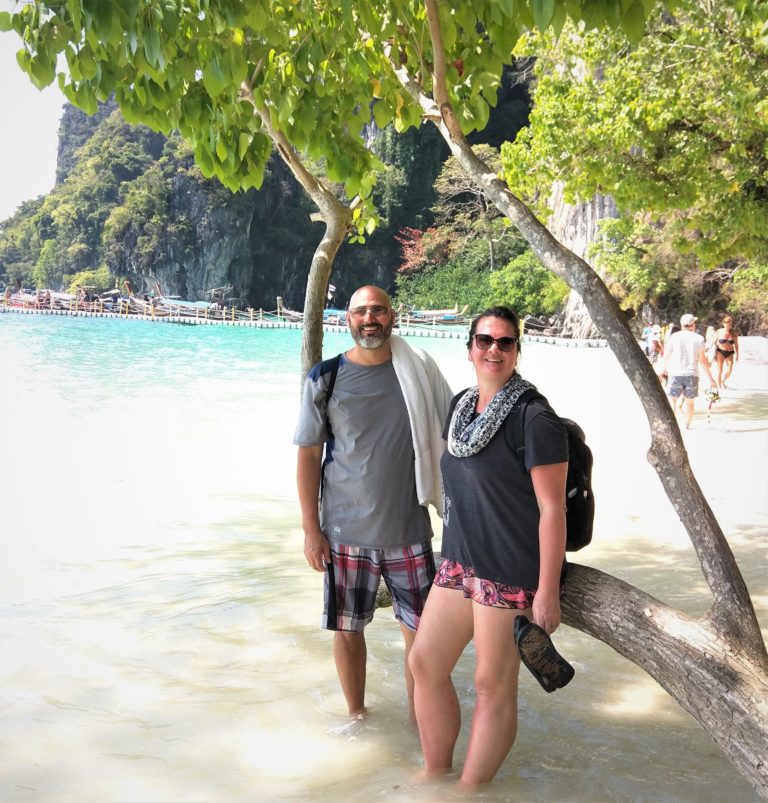
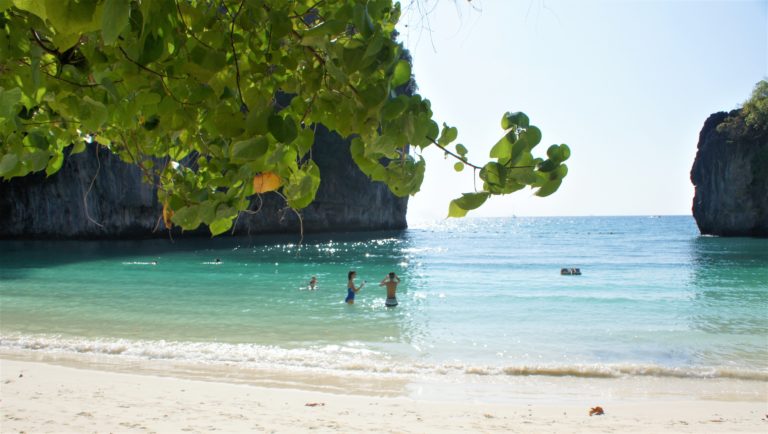
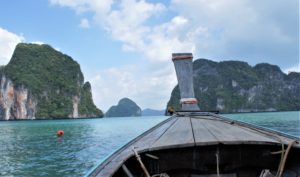
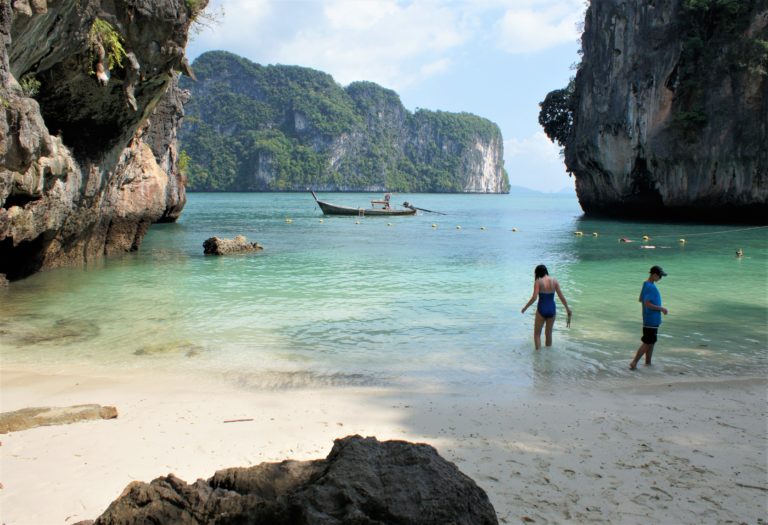
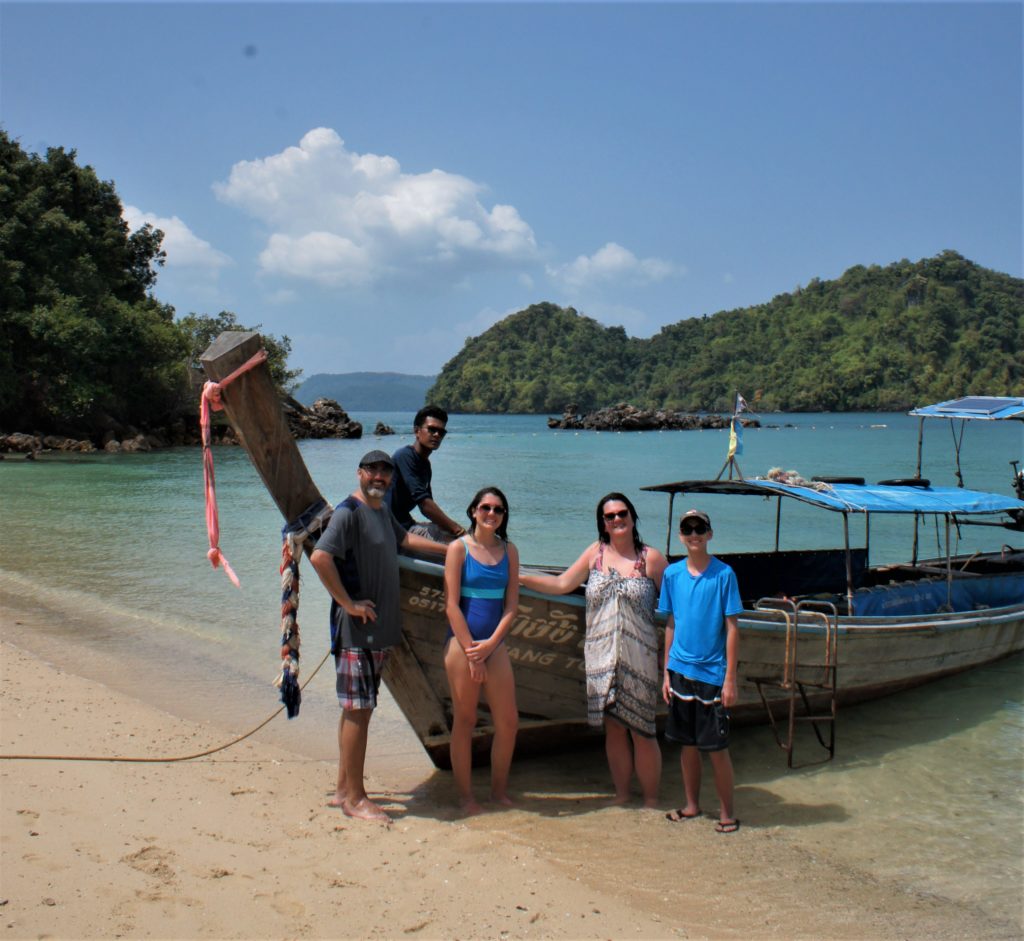
After several days on the water, even paradise can become tiring for some. So to mix things up one afternoon we rented mopeds for a few bucks (literally) and explored the side roads and local neighborhoods on land. While a memory we will never forget, it was not relaxing. One thing a country of moped drivers ensures is that everyone is much more skilled at it than you. Then in Thailand there is the whole “we drive on the other side of the road” thing to contend with.

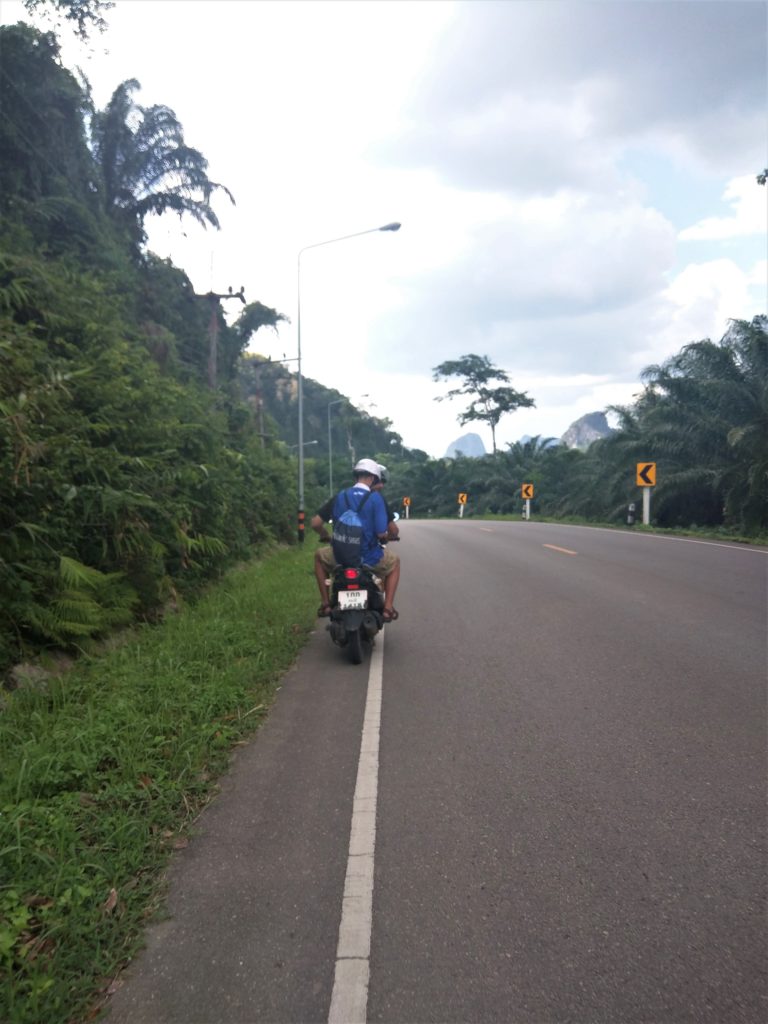
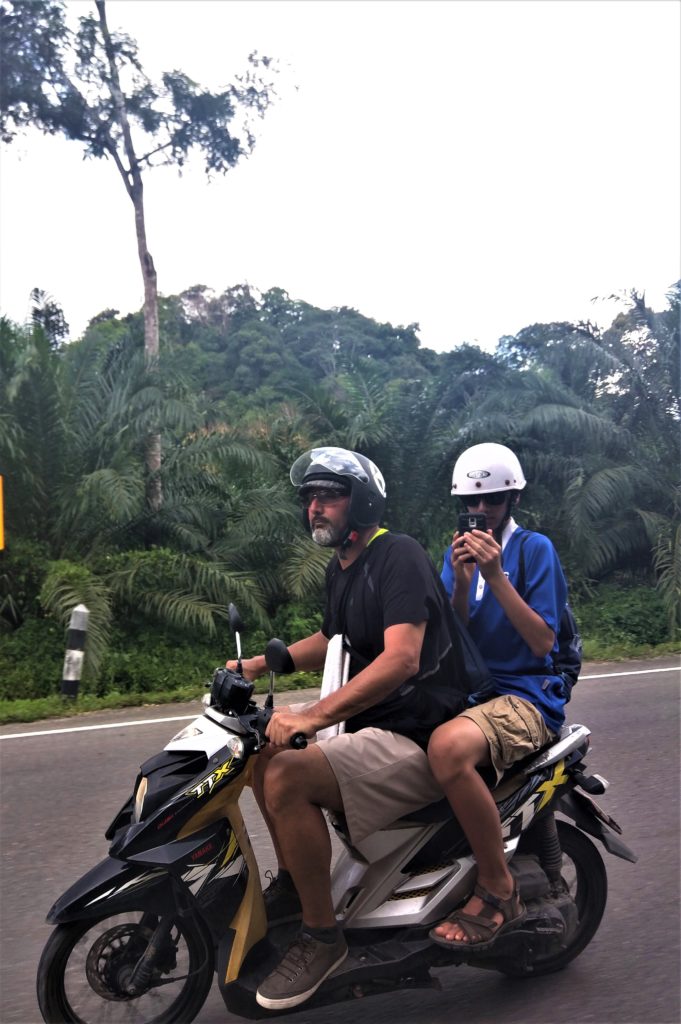
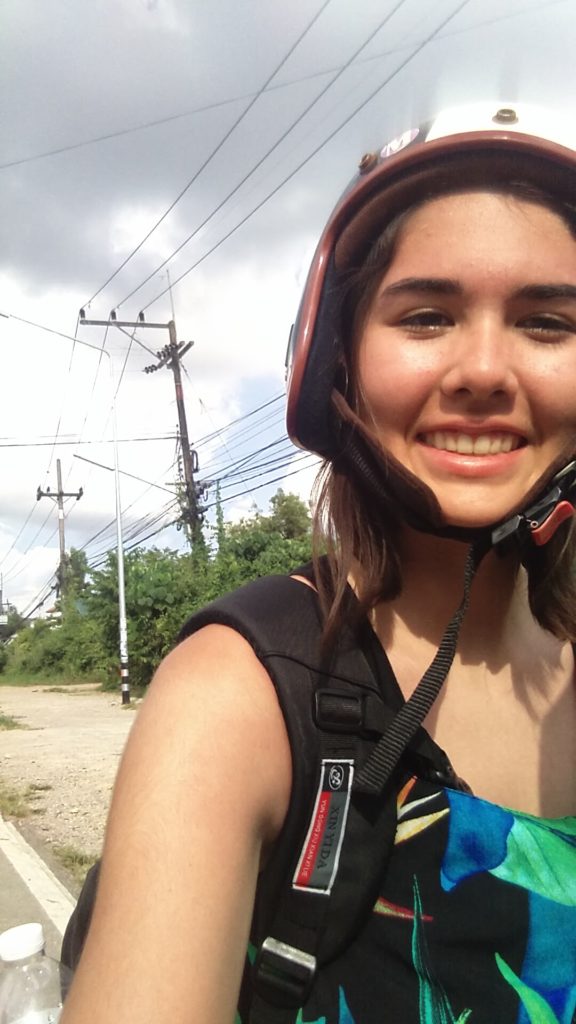
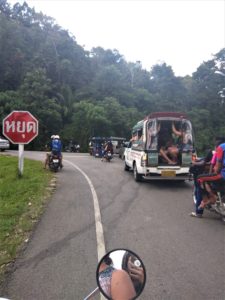
Not wanting to ruin the rest of our trip with an extended trip to the hospital, I opted for caution and slower speeds that were completely within the white line and on the correct side of the road. Jeff, having much more confidence at two wheeled vehicles having owned and operated motorcycles, took off (much to Marco’s delight) at speeds more thrilling.
Evenings were spent back at our bungalow, siting in the hammocks or more often just sitting in the open air dining hall that was like a super club with residents and guest dining, playing cards, and laughing the night away.
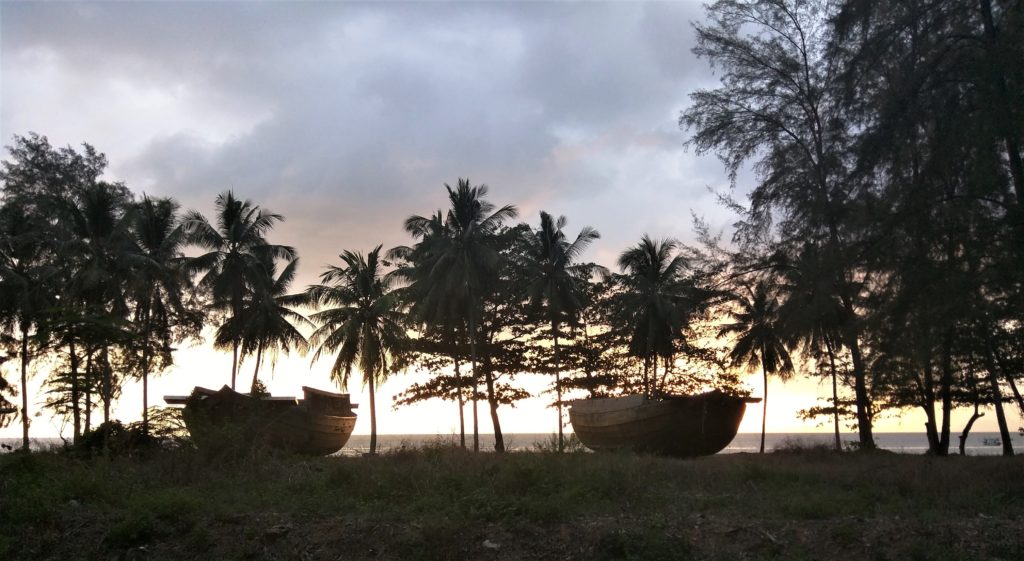

The rest and relaxation of the beaches prepared us for our next adventure. One that would take us deeper into the jungle.
